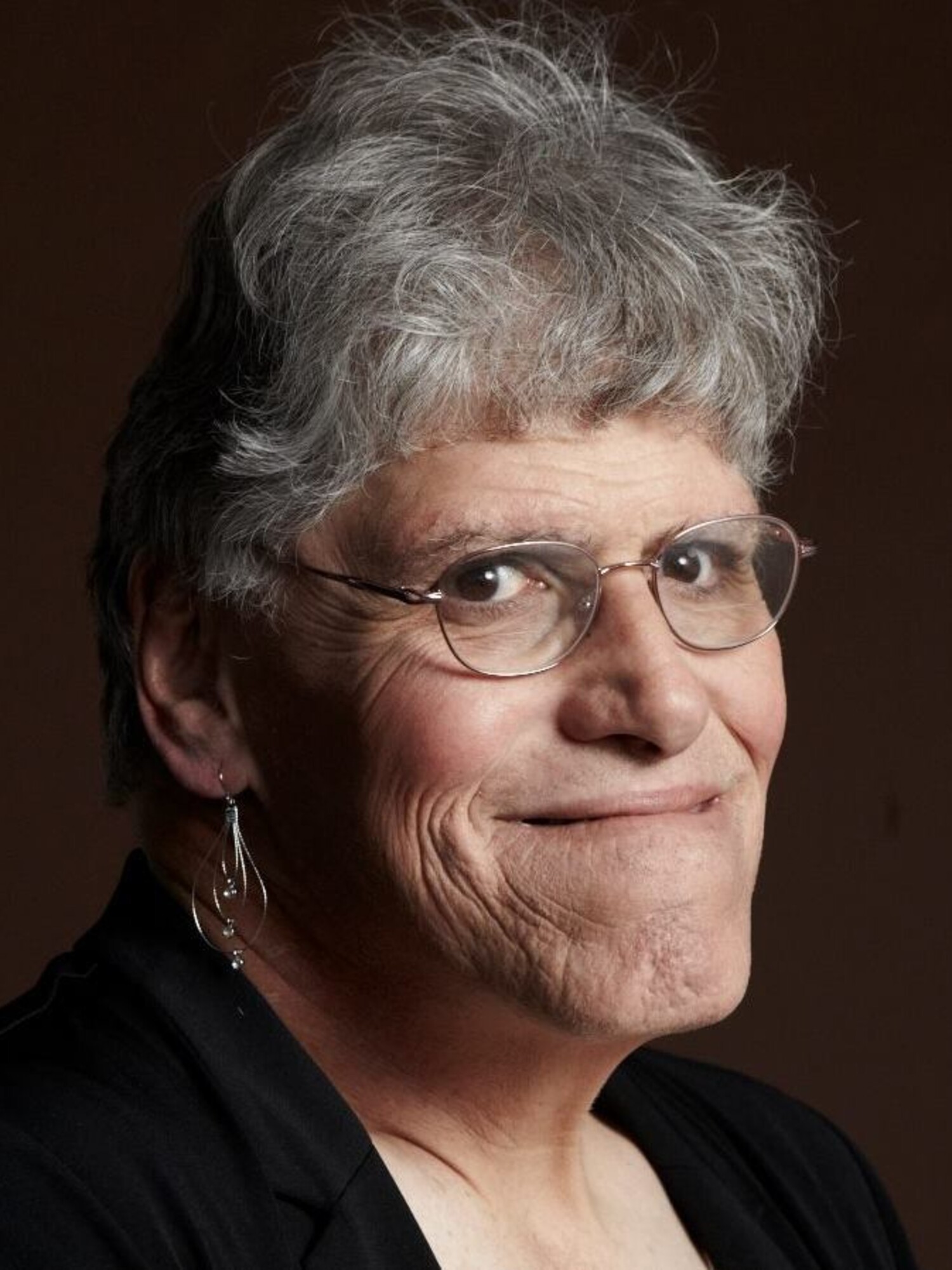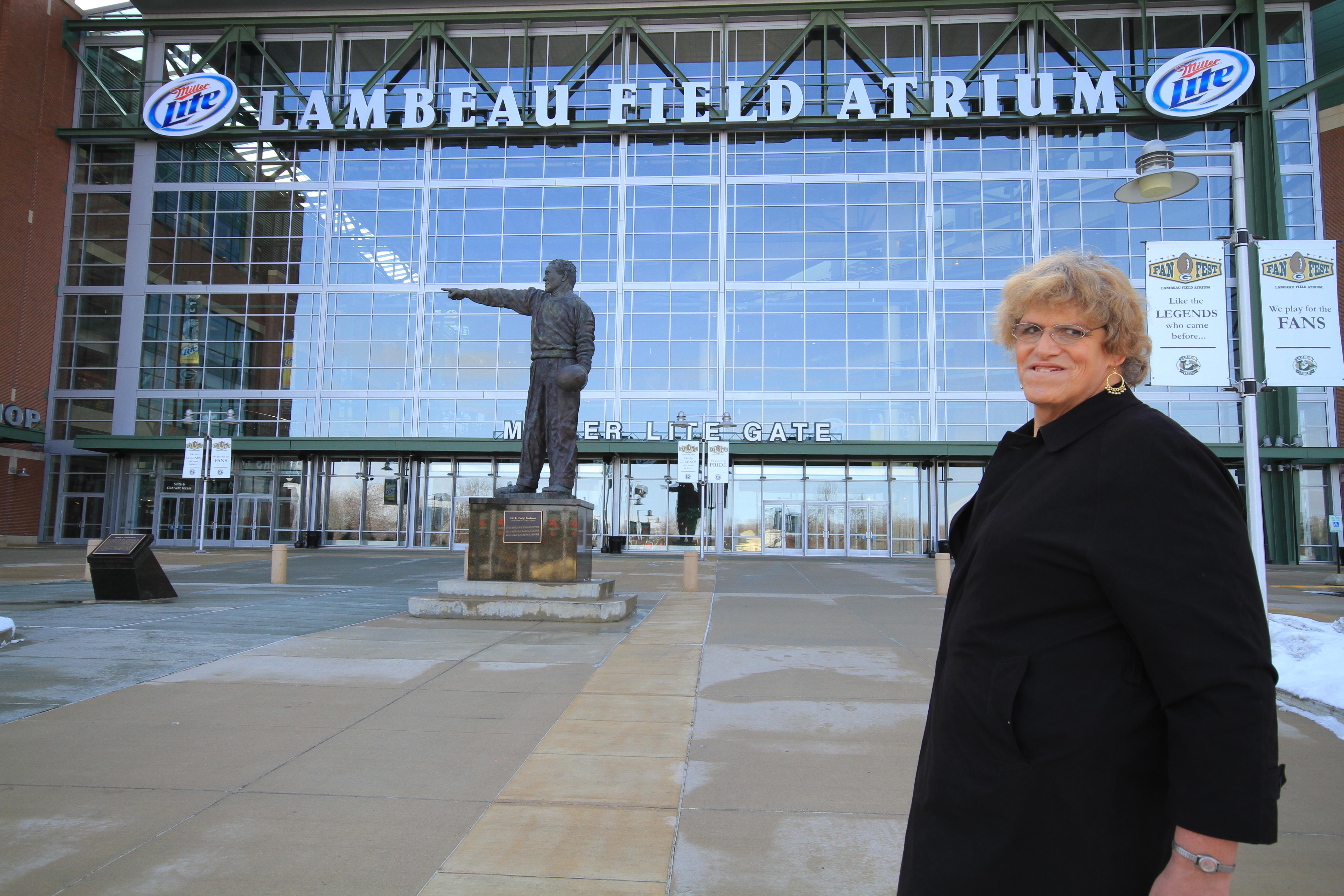
In Memoriam: Markie Anna Wenzel

Markie Wenzel was born February 22, 1960 in Green Bay, Wisconsin, but spent most of her life on Milwaukee’s South Side. She also spent most of her life identifying as Mark Anthony Wenzel.
While living in Milwaukee, Markie graduated from UWM, married, raised three children and became a licensed minister. As Mark, she lived a life governed by a strong fundamentalist Baptist faith, although these spiritual and emotional conflicts with religion escalated over time.
In 2006, Mark finally accepted an essential truth about himself that he’d long denied. After 20 years of marriage, Mark came out as Markie, a transgender woman, at age 46. This courageous move cost Markie everything she deeply valued: banished from her church, outcast by her community, divorced from her wife, alienated from her children and grandchildren.
“Markie came from a very conservative Wisconsin family, and resources barely existed for a young kid to access," said filmmaker Matt Kliegman. "She only knew what it meant to be transgender when, as a young child, she saw tennis star Renee Richards on TV talking about her life. That's almost unrecognizable from today’s deep saturation of individual stories and experiences, and a greater mainstream understanding of transgender identity.”
As a seven-foot-tall woman, Markie found it difficult to blend into a society governed by rigid expectations of gender identity, expression, and appearance.
When attracting unwanted attention because of her physicality, Markie would always say with grace, “well, that’s just the way God made me.”
For the next decade, Markie bravely pursued a new life while working as a TSA agent at Mitchell International Airport and preparing for gender affirmation surgery. While preparing for surgery, she was misgendered by the scheduling staff, and felt that she would never pass as a woman.
“God does not want this for me,” she told herself. She would later admit her mistake.
"Towards the end of 2007, I was visiting my folks in Milwaukee towards the end of 2007 when I first saw Markie working as a TSA agent. Markie’s presentation at the time caught my attention—she was certainly very tall and seemed distressed, and at the time, I could not read her gender expression, especially in a TSA uniform.
As a recent film school graduate, I was always curious to find non-actors for my short experimental films and initially thought Markie could be an amazing actor for one of these projects. I left a business card (my first!) with another TSA employee who handed it to Markie some time later.
After a few months she eventually reached out, and after some chatting we decided to meet up and began filming together while I tried to come up with a longer form scripted project. A lot of those initial sequences were focused on just Markie being Markie around town—Markie goes to the grocery store, Markie goes to a job fair, Markie walks around in the park, etc.
But at the time I was not aware of the beneficial nature of this work for Markie - it allowed her to see herself authentically and served as positive motivation that she was on the right path. It took about a year before any of the major topics of the film came up—Markie's past as an evangelical minister and Markie’s current gender journey.
After a life of abuse and discouragement about her gender identity, she had some very real concerns about directly telling me, perhaps worrying how I (a relative stranger) would react, and if I’d lose interest in the project or be upset. But by that point, I had found a muse in Markie and throughout the process Markie continued opening herself up further, revealing the greater and greater depths contained in her soul.
The critical piece that convinced me to make a documentary was Markie’s lifelong desire to chronicle her experiences and share with the world what her life was like. This presented initially when she was a preacher, hiding her identity and talking about it in coded language in evangelical churches all across the country. Markie’s frequent autobiographical writings and even the documentation of her process in photo booths around southeastern Wisconsin were part of this. Markie wanted to share her story, and I felt we could be a great pair as I had the technical and emotional faculties to help the story be made and brought to a wider audience. The fact that I would come into her life, and help her continue to chronicle her experiences made a lot of sense, and everything rolled along organically after that, and it signaled to me we were on the right path.
It was obvious this was an important story to follow, and Markie was an incredibly unique hero and shining example of someone to be inspired by. Everyone could benefit from Markie’s positivity and infinite energy to keep going. Markie loved Rocky Balboa and, when times got hard, would often tell me, “It ain't about how hard you hit. It's about how hard you can get hit and keep moving forward; how much you can take and keep moving forward. That's how winning is done!
I saw the positivity of her messaging and her overall perseverance as a blessing to the world, and I would sacrifice whatever was necessary to bring her story to the widest audience I could."
The movie opened October 19, 2019 at the Milwaukee Film Festival. Soon, it received rave reviews from local and state media, as well as the New York Times, Boston Globe, Huffington Post, Los Angeles Times, and Film Review Daily. It was named one of the best documentaries of the year. Today, the film is available on multiple streaming channels, including Vimeo.
The film ends on an ambiguous note, hinting that Markie was not gone forever. It appears that Markie returned to a male identity for a very short time. Presenting as male during film openings and interviews, Markie was simultaneously presenting as female in social settings and on social media.
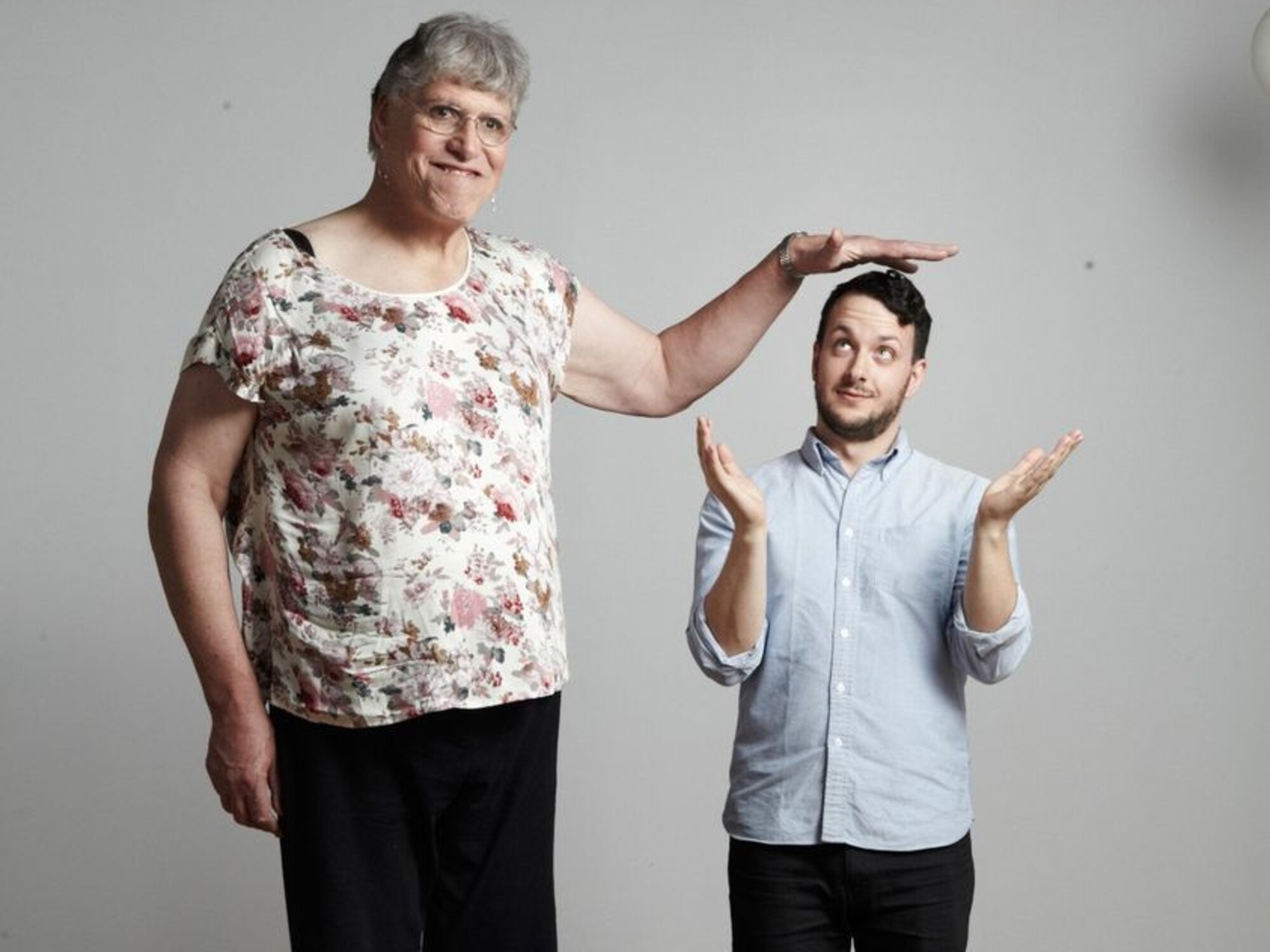 Markie and Matt
Markie and Matt
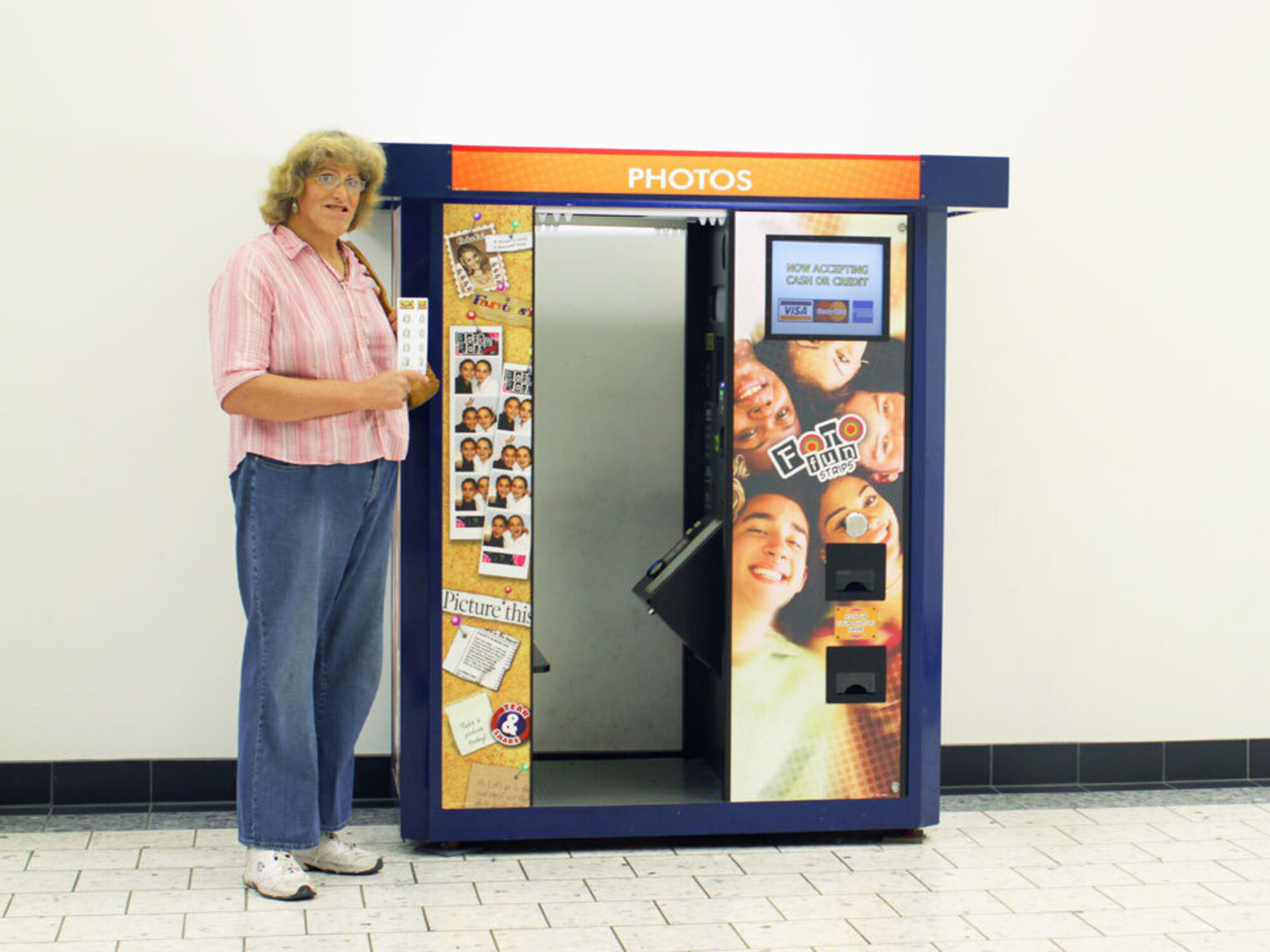 Markie in Milwaukee
Markie in Milwaukee
Kliegman adds:
"We began the film during America’s awakening to the fact that transgender people exist, but at the time, those individuals being highlighted were perhaps selected for their ability to integrate into mainstream culture more seamlessly—with slightly more glamorous presentations.
Growing up, I had friends and family who were transgender, so I was always able to see
Markie as an interesting human and character who happened to be transgender.
I acknowledge that the challenges of making a film are nothing compared to living a life But as we had a goal of bringing the film to a larger audience, I was cognizant of being questioned about my intentions of telling Markie’s story—one that has serious ups and downs and does not tie up neatly at the end or even have a classic happy ending..
No two people's experiences are the same. This was a big takeaway.
The largest lesson I learned from Markie is grace and perseverance. But beyond that, Markie taught me so much—everything from parenting advice to how to enjoy a football game, and even theological debates on scripture. As a transplant to Wisconsin I never really engaged with a lot of the classic pastimes of the state but Markie was an incredible host to all things Wisconsin: bratwursts, the glory of Vince Lombardi and his Packers, Wisconsin State fair and its creme puffs…
Markie and I had so much not in common, but it was the quality of our similarities that allowed us to get along so marvelously, and the process just worked organically."
International acclaim
Markie in Milwaukee was widely praised at film screenings all over the world, including Paris and Tunisia. And the film’s emotional impact on audiences was immeasurable.
“Markie frequently struggled in LGBTQ spaces as a devout Christian,” said Kliegman. “She encountered a fair number of people who were pushed out of religious environments and were upset about it. So to hear Markie talk about her faith set her at odds with an otherwise wecloming community.”
“One of the most powerful screenings we ever had was Sidewalk Film Festival in Birmingham, Alabama. Seemingly, everyone in the crowd grew up in fundamental Baptist churches where they developed deep faith, but were constantly conflicted with their communities and families because of their gender or sexual identities. Yet, the line of people who wanted to speak with Markie after the screening, and share their similar experiences, was incredible to see.”
But Kliegman knew the applause would end at some point.
“I hoped Markie would be able to continue to grow, and find opportunities to share her story wider,” said Kliegman. “There was discussion of publishing an autobiography as a sequel of sorts, or other projects, but due to time and logistics, nothing ever materialized.”
“We stayed in touch, especially over the holidays and anytime a Rocky/Creed sequel hit the theaters. But my trips to Wisconsin were often shorter, and the time was spent with my family, partially to compensate for the previous decade of Wisconsin trips spent mostly with Markie.”
One foot in the church, one foot out
July 4, 2021 seemed to be a special turning point for Markie, and she began to pursue her transition again in earnest.
“I have found a way to fund the remainder of my journey,” she wrote on July 17, 2021. “I am excited about being whole one day. And being totally able to be who I am.”
After resuming hormones in September 2021, Markie again began pursuing a physical transition. This time, she refused to leave her church. She maintained a very difficult balance -- “one foot in the church, and one foot out” – for the rest of her life.
“I had to finally realize,” Markie wrote on December 10, 2021, “as much as I ran and hid and denied and fought, I indeed was running from myself. It is not what I want to be. But this is who I always have been. And YES IT IS OK.”
Markie aggressively pursued her overall healthcare goals, including weight loss, hip replacement, and improved mobility. She enjoyed socializing with friends at the Milwaukee LGBT Community Center, watching Green Bay Packers games, and traveling. Following retirement, she saw herself as a teacher, trainer and mentor for others in the community. In October 2019, she visited the Stonewall Inn in New York City, commenting “perhaps I need to become an activist.” She was committed to supporting her community through FORGE events and Gemini Gender meetings.
An unexpected goodbye
After her mother’s death in summer 2022, Markie experienced a deep, two-week-long depression. But subsequent posts were optimistic and hopeful, including this one: “Good news! The doctor says I’m going to be around for awhile!”
Sadly, Markie Wenzel died in December 2023 at age 63. No obituary was published and no cause is known.
“I can’t begin to put to words the profound impact they’ve had on my life,” wrote Kliegman on December 30, 2023. “A simultaneous parent, older sibling, close friend, life coach, spiritual advisor, and colleague in enjoying classic rock… I hope you have found peace.”
“Markie had some health issues, but that had been somewhat a constant throughout our relationship,” said Kliegman. “Markie was always larger than life to me, and I just couldn’t imagine the world ever existing without her. Her cousin, whom I met at a New York screening, reached out to tell me the news. That was the only source of information that she passed.”
“Once you hear the devastating news, the whole world turns around, and there is instant regret at not making more time for this person,” he said. “I still catch myself reaching for my phone and texting Markie what she thinks about news stories.”
A story that forever matters
While Markie’s family did not respond to our attempts to share her story, Kliegman has partnered with Milwaukee Film for a special “Markie in Milwaukee” memorial screening and audience Q&A on Sunday, June 23 at the Oriental Theater.
“It's important to say Markie had a huge impact on me as an artist and someone committed to non-fiction storytelling. Markie in Milwaukee is the final product we made together, but the profound part is the process of a nearly 16-year relationship, the ups and downs, and ultimately the grief of their passing.”
“Markie in Milwaukee shows how complex people are, and that you can harbor seemingly contradictory beliefs within yourself, and that’s okay and just who you are,” said Kliegman.
“Markie always walked a narrow line between two worlds otherwise seen as diametrically opposed, and perhaps her sacrifices, and the troubles she encountered, will help in some small way to liberate us all in the end.”
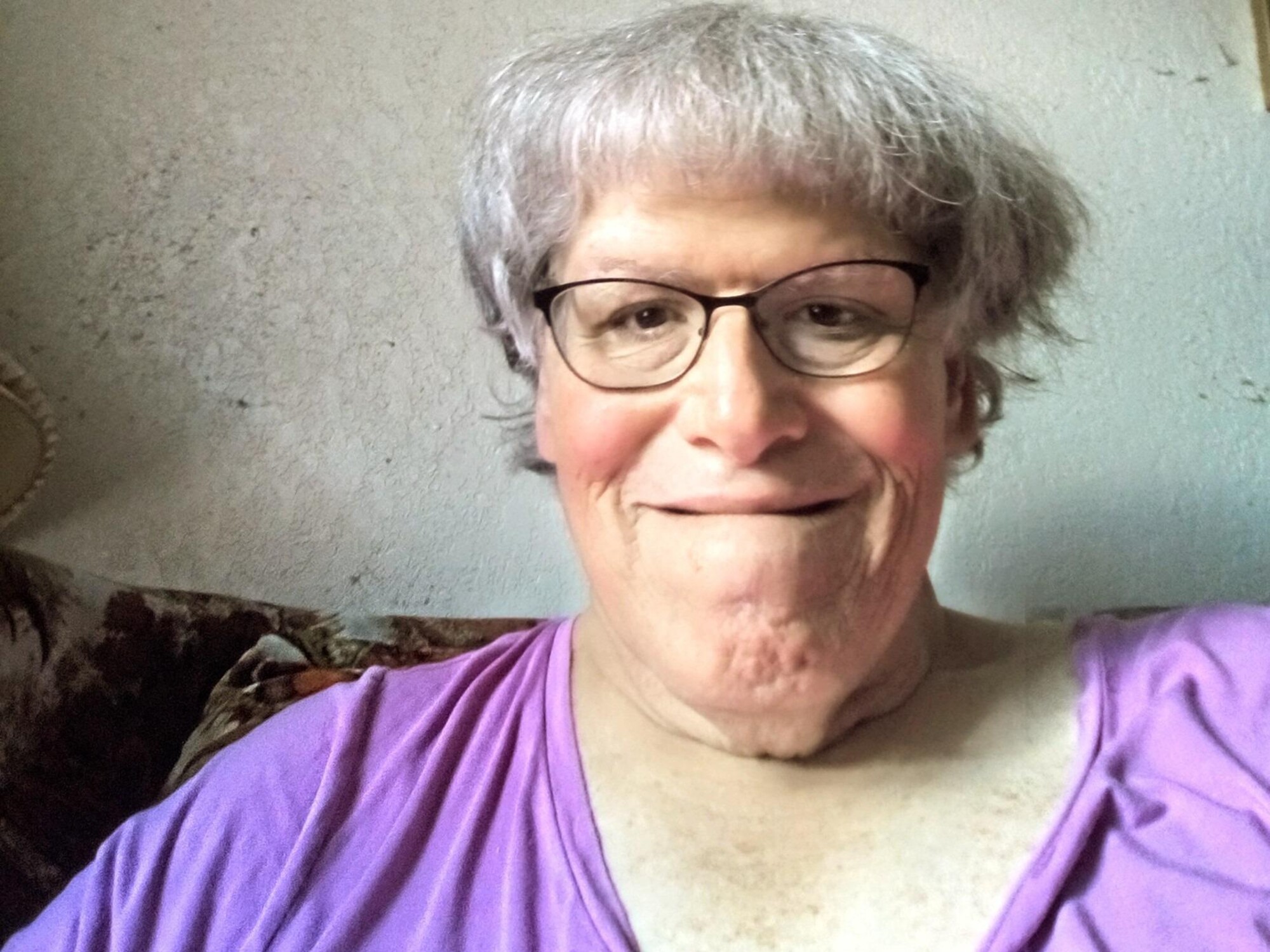 Markie Wenzel
Markie Wenzel
recent blog posts
December 17, 2025 | Michail Takach
December 16, 2025 | Michail Takach
December 01, 2025 | Dan Fons
The concept for this web site was envisioned by Don Schwamb in 2003, and over the next 15 years, he was the sole researcher, programmer and primary contributor, bearing all costs for hosting the web site personally.
